
Another year has flown by, leaving me wondering where the time went. As I think about my family’s milestones and memories over the past year, I’m reminded of how often I get consumed by work, my family’s hectic schedule, and the never-ending list of household chores. It’s easy for my family to go through the motions of our daily routines – get up, go to school or work, come home, eat, do homework or work, go to bed, repeat, repeat, repeat – and even be in the same room without really noticing and appreciating each other. It takes deliberate and constant effort to be a positive parent (and partner), and the new year is a good time for a fresh start.
Positive Parenting Awareness Month is a time to recognize the vital role that “parents” – including birth, foster, and adoptive parents, grandparents, and other relatives or family friends – play in raising happy, healthy, thriving children. It’s a chance to encourage all types of families to seek and accept support from friends, family members, neighbors, and Family Coaches. And it’s a time to let go of past parenting mistakes or regrets and start the new year with new tools in the “parenting toolbox.”
We encourage everyone to use and share these tips to renew, refresh, and recharge their commitment to positive parenting not just in January, but every day of the year.
What is positive parenting? It’s an approach to raising children that strengthens family relationships, increases parents’ confidence and promotes children’s healthy development. Research shows that the quality of parenting and caregiving throughout a child’s life is one of the most powerful predictors of their future social, emotional, and physical health and well-being.
There isn’t one “right” way to be a parent, but there are many parenting programs and strategies that have helped families across the world. One program is called Positive Discipline, which is based on these five principles of positive parenting:
Principle 1: Provide a safe, interesting environment. This gives children and teens the opportunity to play, explore, discover and experiment. This is how they learn and develop important life skills, such as communicating with others, solving problems, and being independent. The amount of supervision and limit-setting will change as children get older, but even teens (and young adults) need to know they have people in their lives who will keep them physically and emotionally safe.
Principle 2: Create a positive learning environment. Help children and teens feel safe and confident to explore and learn new skills by noticing their efforts, giving positive attention and descriptive praise, and modeling healthy, appropriate behaviors. These tips might seem too simple or obvious to mention, but many times it’s the smallest efforts that make the biggest difference.
 Principle 3: Use positive discipline. Remember that discipline is not the same as punishment. Positive discipline is a calm, consistent approach to teaching children and teens new ways of thinking and behaving. When used as a teaching tool, positive discipline helps children and teens accept responsibility for their choices, become aware of other people’s needs, and develop self-control. Someday, your children’s employers and partners will thank you for teaching them these skills.
Principle 3: Use positive discipline. Remember that discipline is not the same as punishment. Positive discipline is a calm, consistent approach to teaching children and teens new ways of thinking and behaving. When used as a teaching tool, positive discipline helps children and teens accept responsibility for their choices, become aware of other people’s needs, and develop self-control. Someday, your children’s employers and partners will thank you for teaching them these skills.
Principle 4: Have realistic expectations. Every child and teen is unique in the way they learn and develop. Conflict and frustration can occur when parents expect too much too soon of their children. Likewise, children and teens miss opportunities to learn and grow when parents don’t expect enough of their children. It’s also important for parents to have realistic expectations of themselves. Remember there’s no such thing as a perfect parent or child.
Principle 5: Take care of yourself as a parent. Many parents and caregivers feel unprepared or uncertain, and asking for help is often seen as a weakness. Fear of being blamed or shamed prevents many people from seeking support. And yet, the non-stop job of parenting is easier when our own physical, social, emotional, and intellectual needs are met. This recharges our “parenting batteries” so that we have energy to be patient, consistent, and available for our children.
FINAL THOUGHTS: Let’s make positive parenting a daily habit and start the new year with a renewed focus on our family relationships and parenting practices. We're in – are you?
6 Parenting Resolutions You Can Keep in 2024
With the most enthusiasm you can muster (to start 2024 off with a bang) you’ve purchased a new online gym membership and meal planning service. Or maybe you’ve decided THIS is going to be the year you finally get out of debt or finish the degree you started several years ago.
And while I’m cheering you on for those resolutions and I want you to look back on 2024 as the year you finally followed through on your important intentions, might I suggest you add something different to your list this year?
A resolution that will impact your family for years to come. A resolution that will bring peace and joy into your home in ways you’ve never experienced. A resolution that will reconnect you with your children in a meaningful way.
This is a resolution you can keep: Become the parent you’ve always wanted to be in 2024.
(Sign up for our FREE ONLINE PARENTING CLASS for a sneak peek of the 52 positive parenting tools that will help you along your new parenting journey.)
In order to make that resolution a reality, I want to share 6 practical things you can start doing today. This isn’t a resolution about doing MORE, but rather a resolution about doing BETTER–both better for you and better for your children.
You CAN become the parent you’ve always dreamed of being. Don’t let the gym memberships or new workout routines or financial goals be the only resolutions you make this year.
Resolve to be the best you can for the most important people in your life. Resolve to make these 6 changes today and I guarantee you’ll enter 2024 with undeniable confidence as a parent.
 1. Rethink the Way You Spend Time With Your Kids
1. Rethink the Way You Spend Time With Your Kids
Consider your day-in-day-out time with the kids. How often are you multitasking with dinner or laundry or the bazillion other things on your list?
While we’re physically WITH our kids, we’re not always fully present in mind, body and soul. (Myself included.)
Because of that, we pay a price. If kids don’t get some “fully present and engaged” time with us during the day, they will have their attention baskets filled one way or another–whining, clinging, interrupting, fighting with siblings. Do any of those sound familiar?
All of these behaviors get your attention–albeit negative attention. I know it may seem silly to think a child would seek out negative attention when they don’t get positive attention. But the truth is, kids simply want their baskets filled.
However, you can turn those behaviors around by making a small tweak to the time you already spend with your kids. I’m talking kid-centered, intentional, and directly labeled time.
I’m suggesting you spend 10 INTENTIONAL minutes, each day one-on-one, with each of your kids.
By kid-centered, I mean your child is in control of the 10 minutes–they call the shots. A tea party? LEGO building? Dressing up daddy? A tickle fight? Listening to their favorite music with your teen? Whatever the kid chooses, you oblige. (As long as it’s an activity that can reasonably be accomplished in 10-15 minutes.) By giving your child the power during this time, you help fill their power buckets in incredible ways.
By intentional, I mean no distractions–put down your phone, don’t answer that email, and turn off the show you’re watching. Your child is the center of your universe for these 10 minutes and it’s critical you are fully present for your time with her.
Lastly, be sure to label this as your "special time" at the outset (you can call it whatever you want) and when it’s finished, say, “I sure enjoyed our special time today! I can’t wait to do it again tomorrow!” Your child will benefit from knowing you’re committed to your time, plus you’ll get credit in his mind for time well spent.
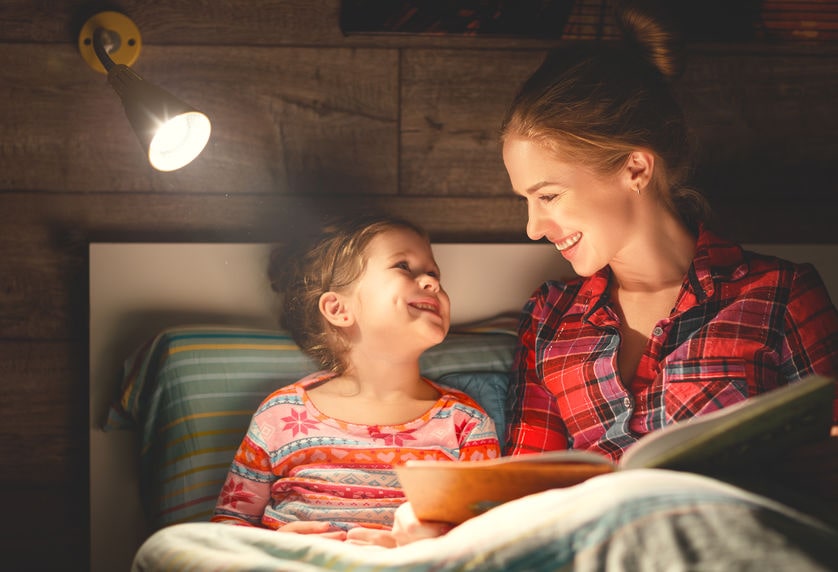 2. Ensure Your Child Gets Enough Sleep
2. Ensure Your Child Gets Enough Sleep
Sleep matters…a lot. Kids would never admit it, but they need regular bedtimes and plenty of sleep to be at their best. These key components to a healthy, calm lifestyle, however, are sometimes the first things we abandon as we celebrate the holiday season–and they’re the most daunting piece to restore in January.
So how do we back up bedtime from the late hours we’ve grown used to keeping?
The most effective way to get your kids more sleep is to keep bedtimes early and consistent throughout the week, without much more than a 15-minute difference on the weekends. If you give in to a late bedtime once, kids will think the hour on the clock is always up for negotiation.
 3. Retool Routines
3. Retool Routines
Once you’ve reset bedtimes, refresh your evening routine so the not-so-fun stuff (brushing teeth, picking out an outfit for the next day) comes before the good stuff (reading with Mom or Dad until lights out at 8:30).
Routines like this can revolutionize all the tricky times of the day. Be sure the very last item in the routine–enjoying media time, perhaps, or playing with friends–can only happen after the yucky stuff is done.
Start small by revamping one routine at a time. Once you have bedtimes streamlined, for instance, move on to mornings. Stick to the routine and soon your kids will take control of their own schedules with less pushback from them and no nagging from you.
 4. Demonstrate the Behavior You Want to See
4. Demonstrate the Behavior You Want to See
Most parents don’t know it–or don’t like to admit it–but we do a lot of things that contribute to our kids’ poor behavior.
Have you ever heard a parent say, “Do as I say, not as I do?”
Was your next thought, “Hey, that’s not fair!?”
You’re not alone.
Kids see the world in black and white, and if our actions are not consistent with our words, they will push back and you’ll have a whopping power struggle on your hands!
Do you harp on your kids for leaving toys all over the floor, while your kitchen desk is covered in a mound of unopened mail and papers?
Do you yell at your kids to reprimand them for yelling at each other?
Are you munching on chips on the couch when you tell your kids to take their snacks out of the living room?
Like it or not, kids pay much more attention to what we DO rather than what we say.
When we command one thing and do another, we send the message that our rules are optional. By deleting these double standards, we’ll get better behavior from our kids.
 5. Task Every Kid With a Job (or Two)
5. Task Every Kid With a Job (or Two)
Remember last year when your kids never wanted to help out around the house? That doesn’t mean your kids need to be exempt from taking on responsibilities at home this year.
In fact, kiddos of all ages thrive when they feel useful and needed, even if they simply empty trash cans and fold towels. What’s more, when you divvy up the work, you’ll feel less harried and better able to enjoy your family.
Studies show that the earlier you enlist your child’s help, the less pushback you’ll receive.
First, start by assigning every kid a job.
Then–and this part is critical–train each child thoroughly in any new skills. (Keep in mind they might prefer to scrub the shower in their swimsuit, or Swiffer floors instead of dusting baseboards.)
Once they’re able to handle the job on their own, make it official and required by adding it to their routine, or setting up in advance a reasonable consequence if the task doesn’t get finished.
By remaining consistent in your expectations, your kids will see you’re not going to let them wiggle out of their new responsibility and will complete their jobs without pitching a fit as well.
 6. Prioritize Weekly Family Meetings
6. Prioritize Weekly Family Meetings
A new year often means a new hockey schedule, new gymnastics classes, or a changed-up carpool–all these arrangements could take a team of professionals to manage. Even those of us facing the same old routines would probably appreciate a little assistance to ensure everyone is where they need to be at the right time.
That’s where a family meeting comes in.
Set aside a few minutes each week at a regular time, such as Sunday evenings, to meet as a family and get on the same page. Not only is this a time to tackle the logistics of scheduling, but this is a time to problem-solve family issues as well. Whether the dog keeps getting into the trash or your children are having trouble keeping their shared space clean, you can discuss all of these issues and more in a calm and thoughtful way at family meetings.
To get buy-in from everyone, assign rotating jobs to each member of the family (Meeting Leader, Note Taker, Snack Server, etc.), provide refreshments, and make it fun. Not only will you connect as a family, but your kids will start stepping up and taking on more responsibility–and no one will be left behind at swimming practice again!
Final Thoughts
There has never been a better time to make a change in your parenting habits. Your family is too important NOT to be the center of your New Year’s resolutions.
But don’t worry, even if the New Year has left you feeling frazzled, there’s no need to hit the panic button. Start 2024 with these tips and tools, and get ready for the most peaceful, most enjoyable year yet.
If you’d like to learn more strategies to bring out the best in your kids, I’d love for you to JOIN ME FOR A FREE ONLINE PARENTING CLASS!
I’ll teach you how to get your kids to listen without nagging, reminding, or yelling. It’s a great way to jump-start your new parenting resolutions!

Join parents & caregivers like you for 3 Sessions of Positive Parenting classes taught by Melissa Middelthon. Based on Jane Nelsen's Positive Discipline books, you will learn to discipline with firmness and kindness. Have fun with kids and set the foundation for important social and life skills. Help children feel a sense of belonging and significance through mutual respect and encouragement. These classes are a fun way to connect with other parents in the community and practice the skills over a few weeks so that you can go more in-depth with the material.
"The class was very helpful in reducing stress and frustration in parenting. The knowledge that it is never too late to change your approach...we are so adaptable."
"Taking this class was one of the best things I've done for myself and my family since my child was born. I refer back to the class's concepts in order to deal with day-to-day issues and also feel like I have an overarching philosophy to help me as I navigate the parenting world."
A course for parents and caregivers
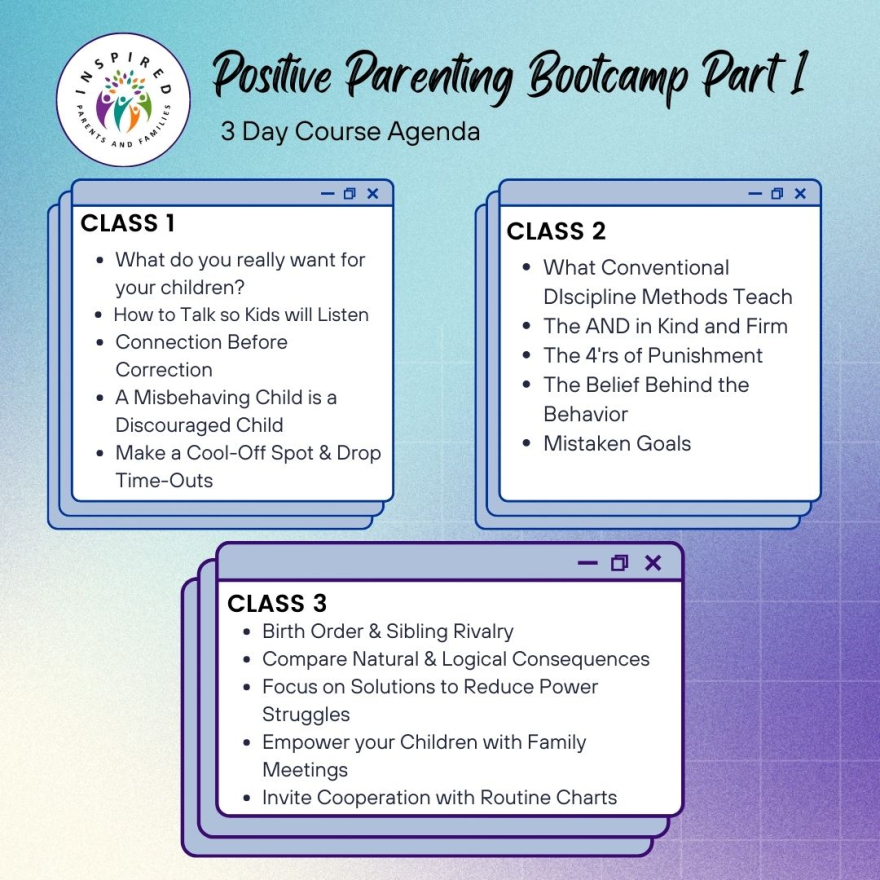 Parents and caregivers will learn long term solutions for raising kids to feel “I am capable, I can contribute, and I can use my personal power in useful ways to improve my life and the lives of others!” Positive Discipline teaches long term parenting skills that will encourage children to think for themselves, become more responsible and have a greater respect for themselves and others. Feel supported while learning some non-punitive, respectful methods that will incorporate kindness and firmness into your relationship with your children. Get to the core of your children's misbehavior, practice encouraging tools and gain a sense of accomplishment.
Parents and caregivers will learn long term solutions for raising kids to feel “I am capable, I can contribute, and I can use my personal power in useful ways to improve my life and the lives of others!” Positive Discipline teaches long term parenting skills that will encourage children to think for themselves, become more responsible and have a greater respect for themselves and others. Feel supported while learning some non-punitive, respectful methods that will incorporate kindness and firmness into your relationship with your children. Get to the core of your children's misbehavior, practice encouraging tools and gain a sense of accomplishment.
This is a highly engaging ONLINE course that works best if you can participate on a computer or tablet. We will be co-creating a safe and supportive space that will include a mix of lecture, small and large group activities, role play and collaboration.
Course Registration: $150
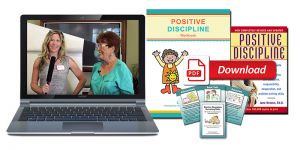
Pricing includes one digital set of all materials needed for the course: Positive Discipline, by Jane Nelsen, The Positive Discipline Workbook, Parenting Tool cards, and bonus access to videos of key lessons and a Family Meeting Toolkit.
Winter Session:
Saturdays, March 2nd, 9th, and 16th 2024 10am-12pm EST
Register: Positive Parenting Bootcamp -3 Session Course - Saturdays, March 2, 9, 16, 2024 10am - 12pm EST
Registration Deadline: Saturday, February 24, 2024
Class Min 8 people / Max 24
Parent and Family Coaching
 Parent coaching is designed to provide insight, help parents discover newfound energy in their parenting, develop an appreciation for what they have and who they are, and create sustainable ways to achieve their vision or dream for their family. Different than therapy, coaching’s unique methodology allows the coach to provide support as a cheerleader, guide, and mirror. Coaching is perfect for helping parents who are feeling overwhelmed, parents who are baffled by their children’s behavior, parents who are looking to bolster their parenting “tool box,” and parents who simply want to take their family’s life from good to great. Interested to see if Coaching would be a good fit for your family? Click below to schedule a complimentary discovery call.
Parent coaching is designed to provide insight, help parents discover newfound energy in their parenting, develop an appreciation for what they have and who they are, and create sustainable ways to achieve their vision or dream for their family. Different than therapy, coaching’s unique methodology allows the coach to provide support as a cheerleader, guide, and mirror. Coaching is perfect for helping parents who are feeling overwhelmed, parents who are baffled by their children’s behavior, parents who are looking to bolster their parenting “tool box,” and parents who simply want to take their family’s life from good to great. Interested to see if Coaching would be a good fit for your family? Click below to schedule a complimentary discovery call.
Schedule Your Free Create Your Inspired Family Discovery Call Today
CONNECT WITH ME
 Another year has flown by, leaving me wondering where the time went. As I think about my family’s milestones and memories over the past year, I’m reminded of how often I get consumed by work, my family’s hectic schedule, and the never-ending list of household chores. It’s easy for my family to go through the motions of our daily routines – get up, go to school or work, come home, eat, do homework or work, go to bed, repeat, repeat, repeat – and even be in the same room without really noticing and appreciating each other. It takes deliberate and constant effort to be a positive parent (and partner), and the new year is a good time for a fresh start.
Another year has flown by, leaving me wondering where the time went. As I think about my family’s milestones and memories over the past year, I’m reminded of how often I get consumed by work, my family’s hectic schedule, and the never-ending list of household chores. It’s easy for my family to go through the motions of our daily routines – get up, go to school or work, come home, eat, do homework or work, go to bed, repeat, repeat, repeat – and even be in the same room without really noticing and appreciating each other. It takes deliberate and constant effort to be a positive parent (and partner), and the new year is a good time for a fresh start.  Principle 3: Use positive discipline. Remember that discipline is not the same as punishment. Positive discipline is a calm, consistent approach to teaching children and teens new ways of thinking and behaving. When used as a teaching tool, positive discipline helps children and teens accept responsibility for their choices, become aware of other people’s needs, and develop self-control. Someday, your children’s employers and partners will thank you for teaching them these skills.
Principle 3: Use positive discipline. Remember that discipline is not the same as punishment. Positive discipline is a calm, consistent approach to teaching children and teens new ways of thinking and behaving. When used as a teaching tool, positive discipline helps children and teens accept responsibility for their choices, become aware of other people’s needs, and develop self-control. Someday, your children’s employers and partners will thank you for teaching them these skills.


 1. Rethink the Way You Spend Time With Your Kids
1. Rethink the Way You Spend Time With Your Kids 3. Retool Routines
3. Retool Routines 4. Demonstrate the Behavior You Want to See
4. Demonstrate the Behavior You Want to See 5. Task Every Kid With a Job (or Two)
5. Task Every Kid With a Job (or Two) 6. Prioritize Weekly Family Meetings
6. Prioritize Weekly Family Meetings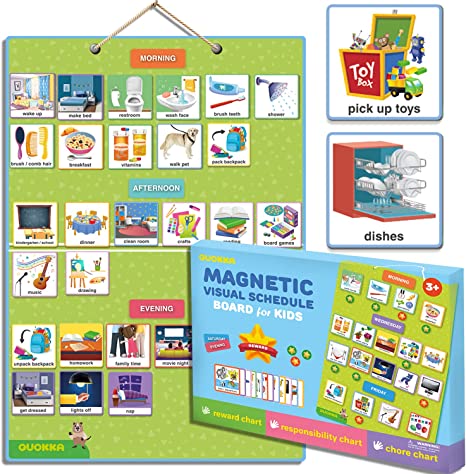
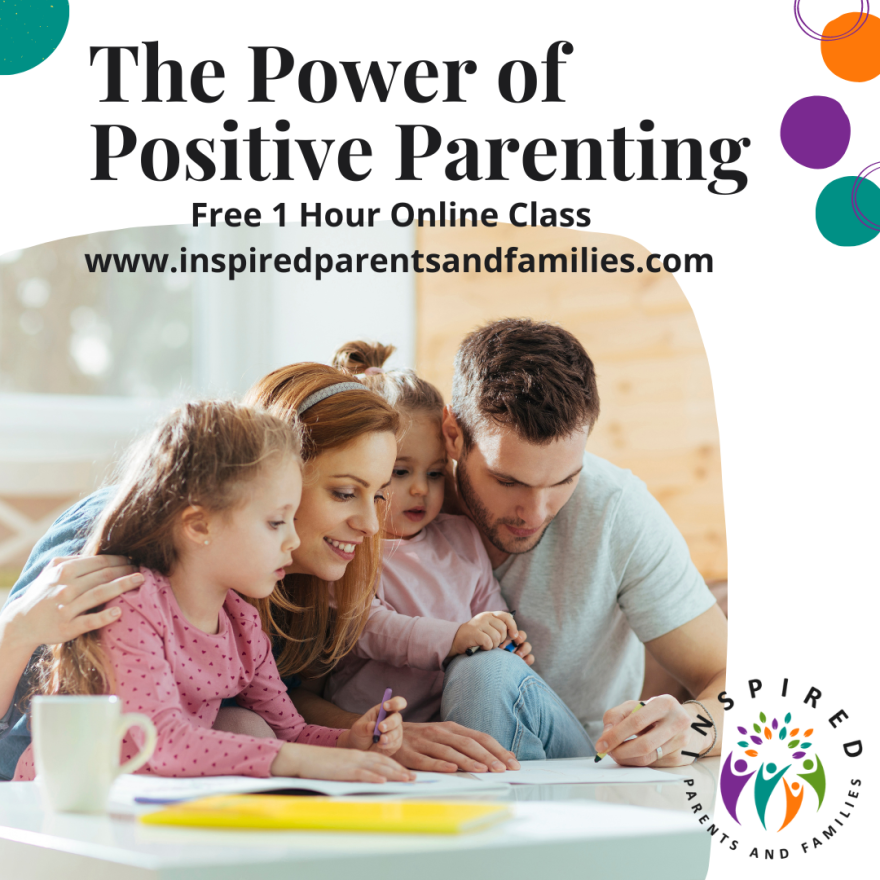
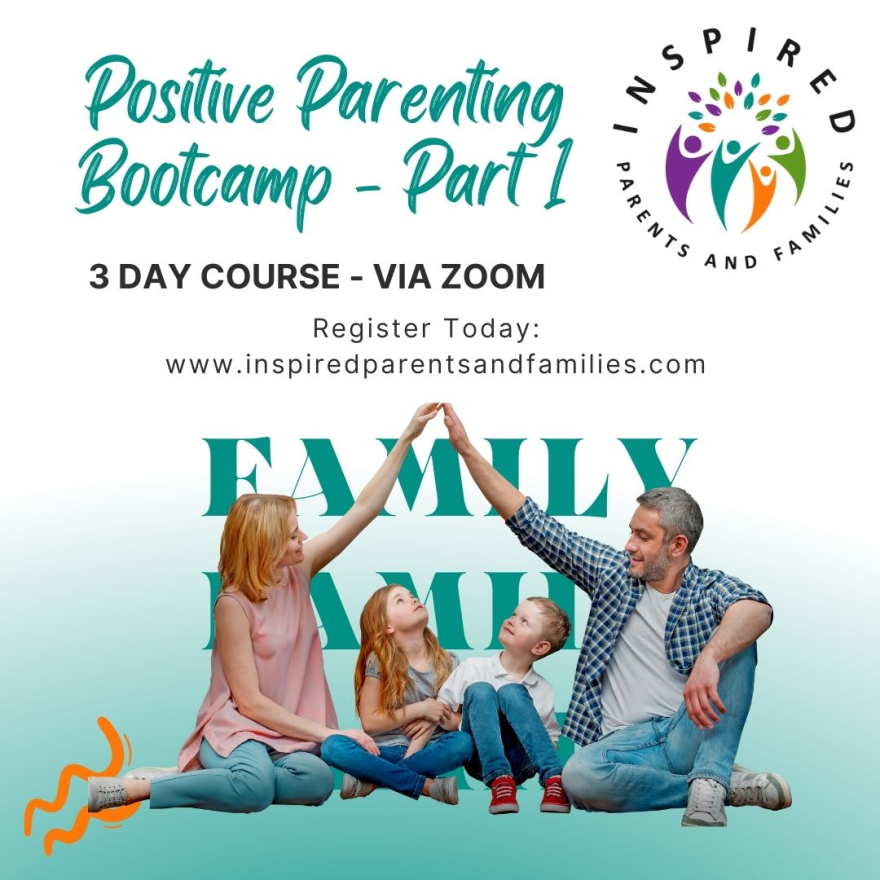
 Parents and caregivers will learn long term solutions for raising kids to feel “I am capable, I can contribute, and I can use my personal power in useful ways to improve my life and the lives of others!” Positive Discipline teaches long term parenting skills that will encourage children to think for themselves, become more responsible and have a greater respect for themselves and others. Feel supported while learning some non-punitive, respectful methods that will incorporate kindness and firmness into your relationship with your children. Get to the core of your children's misbehavior, practice encouraging tools and gain a sense of accomplishment.
Parents and caregivers will learn long term solutions for raising kids to feel “I am capable, I can contribute, and I can use my personal power in useful ways to improve my life and the lives of others!” Positive Discipline teaches long term parenting skills that will encourage children to think for themselves, become more responsible and have a greater respect for themselves and others. Feel supported while learning some non-punitive, respectful methods that will incorporate kindness and firmness into your relationship with your children. Get to the core of your children's misbehavior, practice encouraging tools and gain a sense of accomplishment.
 Parent coaching is designed to provide insight, help parents discover newfound energy in their parenting, develop an appreciation for what they have and who they are, and create sustainable ways to achieve their vision or dream for their family. Different than therapy, coaching’s unique methodology allows the coach to provide support as a cheerleader, guide, and mirror. Coaching is perfect for helping parents who are feeling overwhelmed, parents who are baffled by their children’s behavior, parents who are looking to bolster their parenting “tool box,” and parents who simply want to take their family’s life from good to great. Interested to see if Coaching would be a good fit for your family? Click below to schedule a complimentary discovery call.
Parent coaching is designed to provide insight, help parents discover newfound energy in their parenting, develop an appreciation for what they have and who they are, and create sustainable ways to achieve their vision or dream for their family. Different than therapy, coaching’s unique methodology allows the coach to provide support as a cheerleader, guide, and mirror. Coaching is perfect for helping parents who are feeling overwhelmed, parents who are baffled by their children’s behavior, parents who are looking to bolster their parenting “tool box,” and parents who simply want to take their family’s life from good to great. Interested to see if Coaching would be a good fit for your family? Click below to schedule a complimentary discovery call.